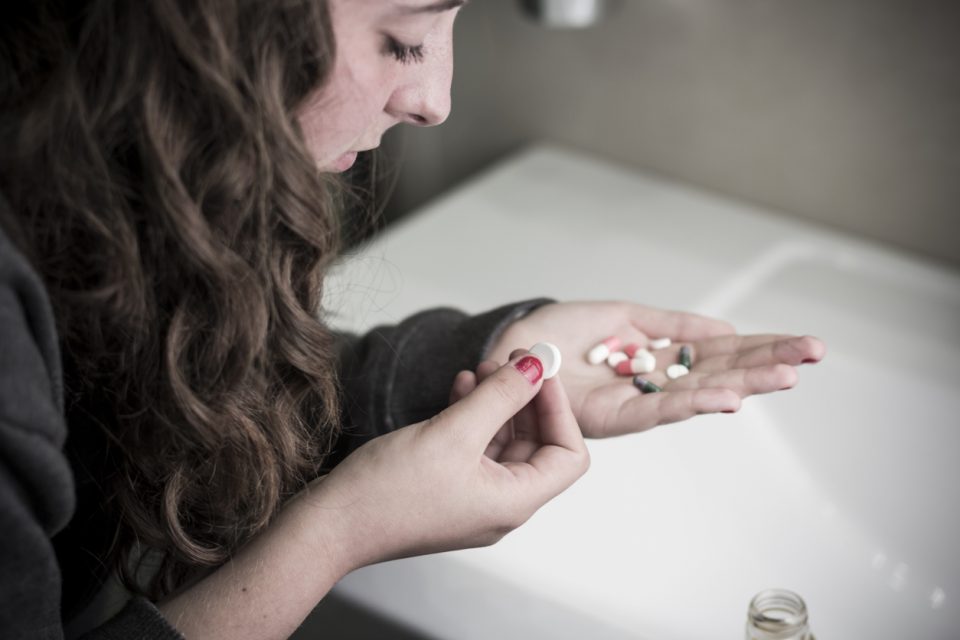By Sandra Gordon
If you’ve never asked yourself that question, it’s high time to consider it. According to the Centers for Disease Control and Prevention, 1 in 5 high school students in the U.S. has taken a prescription drug, such as OxyContin, Vicodin, Adderall, Ritalin, or Xanax without a doctor’s prescription. All told, 15.4 million teens reported misusing prescription drugs at least once in 2007 (the most recent stats), according to the National Institute on Drug Abuse (NIDA). Abusing over-the-counter drugs, such as cough medicine recreationally, is also a widespread problem, especially among U.S. 8th to 12th graders, according to the NIDA.
Teens use these drugs to get high, to cram for tests, lose weight or just because their friends are doing it. But, in general, “they use them because the drugs make them feel happy and change their normal frame of reference,” says David J. Mendelson, MD, MS, FACEP, vice president of medical affairs for EmCare, a company that manages over 400 hospital emergency departments in 40 states. The teen years are ripe for this sort of thing because a child’s brain isn’t fully mature until age 25. Until then, they’re prone to risk taking and living in the moment when it comes to decision making.
Although these drugs can be purchased online or acquired from the local pharmacy, most teens don’t get them that way. “The great majority of kids who misuse prescription and over-the-counter drugs get them from family members and friends,” says Joseph Lee, M.D., child and adolescent psychiatrist at the Hazelden Center for Youth and Families.
Teens help themselves to over-the-counter and prescription drugs from the household medicine cabinet then share them with or sell them to friends, under the misguided notion that these drugs are safer than illicit drugs because they’re prescribed by a doctor or sold over the counter.
But they can still just as deadly, or lead to addiction. Both types of drugs—legal and illegal–send about 1,000,000 people to the emergency department each year in the U.S.
Gen Rx
“One of the best things that parents can do is to educate themselves about which prescription and over-the-counter medications can be potentially abused,” Dr. Lee says. That’s the first step. Here’s a round-up of the most commonly misused meds among teens. Keep in mind, however, that it’s not any one drug that’s the biggest culprit. “Many teens are mixing it up, using multiple drugs most of the time,” he says.
Prescription Drugs Teens Abuse
Opiods: The pain-relieving medications Vicodin (hydrocodone) and OxyContin (oxydodone) are two of the most commonly abused drugs by high school seniors, according to NIDA.
Med mishap: Opiods can be taken orally or the pills can be crushed and the powder snorted or injected. They can produce an addicting feeling of euphoria. They also slow breathing and cause drowsiness. Taking just one dose that’s too large or mixed with other depressants, such as alcohol, antihistamines, barbituates, or benzodiazepines (like Xanax or Valium), can be deadly.
Central nervous system stimulants, such as the amphetamines Adderall and Dexedrine and methylphenidate (Concerta and Ritalin) are typically prescribed to treat attention deficit hyperactivity disorder (ADHD), narcolepsy, and in some, cases, depression that’s not responding to other treatment. They increase alertness and attention.
Med mishap: Stimulants must be taken orally, but they can be crushed, dissolved in water and injected. They can enhance the ability to focus for studying and tests and produce a feeling of euphoria. But high doses can cause hostility, heart failure, seizures, or paranoia.
OTC Misused Medications
Cough and cold medicine, especially those containing the active cough suppressing ingredient dextromethorphan (DXM), such as Robitussin. When taken as directed, these medications are safe and effective.
Med mishap: Taking large doses, on the other hand, commonly referred to as robo-tripping, skittling, dex or candy, can cause distort emotions and perceptions, making you feel detached. It can also cause numbness, nausea, vomiting, fast heart rate and increased blood pressure. On rare occasions, robo-tripping can cut off the brain’s oxygen supply, causing brain damage.
Besides being up on prescription and OTC teen drug trends, here are more steps you can take to bust the misuse of these meds at your house or the potential for it:
Empty out your medicine cabinet. “Saving leftover medication for a rainy day is a really bad idea when you have teenagers,” Dr. Lee says. To dispose of tempting, unused medication properly, follow these Food and Drug Administration Guidelines.
Talk to your kids about drug misuse. “Use reference points in the media as teachable moments. “When you see examples of kids using on TV or there’s an accident in the newspaper, have a brief conversation about it,” Dr. Lee says. Try to be approachable, rather than preachy, to build trust and keep the lines of communication open.
Keep your kids on your radar. “Most drug abuse and addiction starts between age 17 to the early to mid 20s,” Dr. Lee says. “Those are hot spots. That’s when kids can fall through the cracks because nobody’s paying attention to them anymore because they’re technically adults,” he says.
Signs to watch out for that might indicate drug misuse: A change in friends; physical complaints and doctor shopping; a drop in academic performance, change in sleep habits, and/or moodiness. If you suspect there’s a problem, don’t wait to take action. Many parents wait too long before stepping in. Talk to your child, your child’s doctor, or a therapist versed in substance abused for an assessment and a professional opinion about what to do next.


